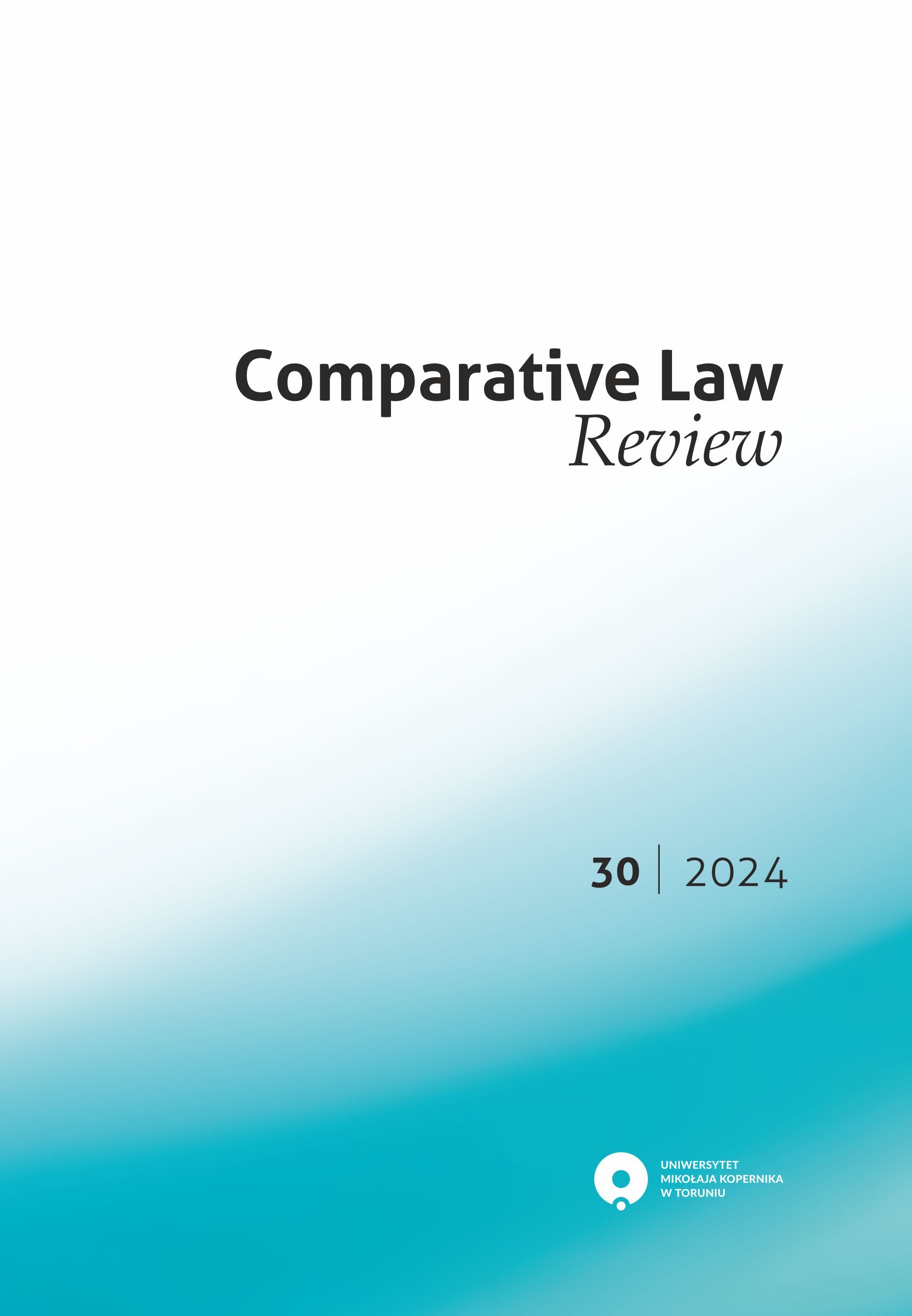The Use of the Comparative Law Method in Classic Pieces by Aristotle and Plato
DOI:
https://doi.org/10.12775/CLR.2024.005Keywords
comparative law, comparative constitutional law, Aristotle, Plato, comparative law methodology, Laws, PoliticsAbstract
The article explores the Platonic roots and the Aristotelian essence of such a leading academic subject as comparative law. Comparative law is not a creation of the 20th century, even though modern comparative law, as we know it, has indeed matured and developed in the 20th century. The journey of comparative law commences with Plato and Aristotle, even though it was Aristotle that seems to have placed comparative law on its academic rails through his extensive, systematic, and rigorous comparative exploration of constitutions. Nevertheless, Plato must have inspired his best student, Aristotle, in the examination of comparative legal matter. Equally, the mastermind and the driving spirit behind the subject of comparative law, as it came to flourish in modernity, seems to have been Aristotle. Generations of comparative lawyers from Lambert and Salleiles to Zweigert, Kötz, and David effectively cultivated a subject which is quintessentially Aristotelian, despite the subject’s apparent Platonic roots. This exposition proves, substantiates, and analyses the Aristotelian spirit of our subject, a subject which has inspired the discipline of law, Academia, and the world, the article taking a balanced approach between the subject’s Platonic roots and the subject’s Aristotelian essence.
Downloads
Published
How to Cite
Issue
Section
License
Copyright (c) 2024 Antonios Emmanuel Platsas

This work is licensed under a Creative Commons Attribution-NoDerivatives 4.0 International License.
Stats
Number of views and downloads: 718
Number of citations: 0



